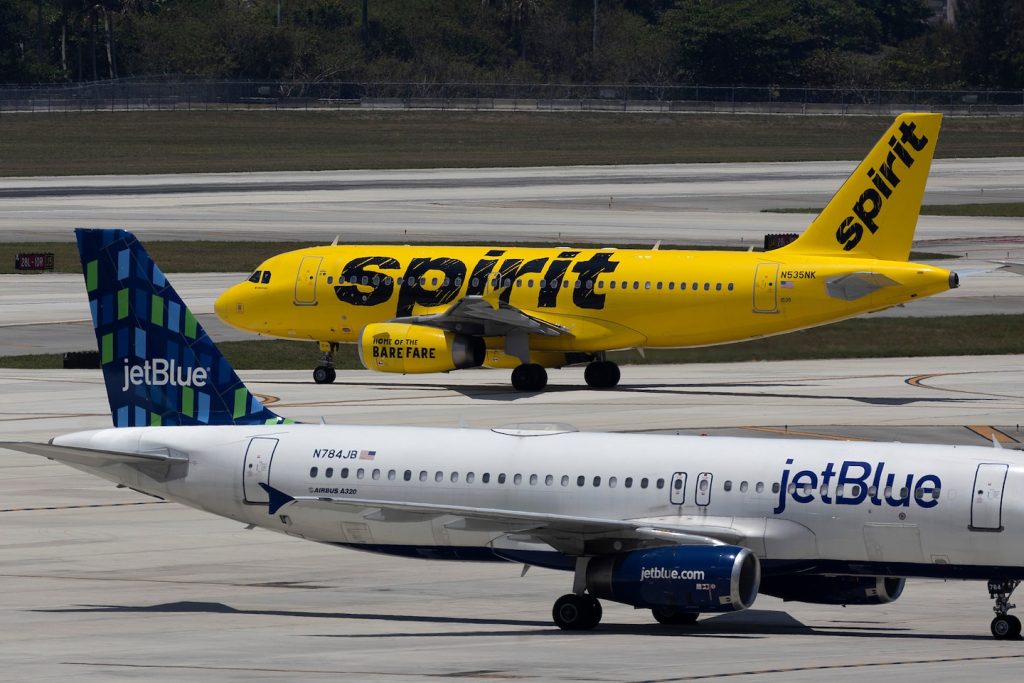The Broward County Sheriff's Office affidavit says Garcia's flight was canceled and passengers were told to retrieve their bags from a carousel at the airport. She told the local news channel that she waited for the bag, which contained a laptop she needed for her university studies, on a carousel for at least two hours. But it never arrived. Garcia told Local 10 News she normally carried the bag on board with her, but on this occasion, Spirit Airlines employees forced her to check it.
When she used an Apple feature to “ping” her electronic devices, she discovered they were in a house in Fort Lauderdale. She went to the address the next day and was unable to make contact with the residents. She told police she saw several bags, but none were hers, according to the affidavit.
A detective then searched the address in the airport's internal employee databases and discovered it was a match to Bazile, who was working at an airport store on the day of the disappearance luggages.
CCTV footage showed Bazile entering the storage room of the store he worked at with a pink hard-shell roller bag, matching the description of Garcia's stolen luggage. After placing the suitcase under the desk, he took out a MacBook and other items, which he placed in separate bags.
It is not known how or when the suitcase was recovered. According to Local 10 News, Garcia's items have not been recovered.
Paradies Lagardère, where Bazile worked, said in an emailed statement Thursday that the company “takes this matter very seriously.” Immediately after learning of the incident, this employee was fired. Bazile has been charged with robbery and his hearing is scheduled for August.
Spirit Airlines said in an email that while it was “not aware of any evidence that a Spirit employee was involved,” it issued a refund check to the passenger “as a courtesy.”
A lawyer for Bazile did not immediately respond to requests for comment overnight.
This is not the first time passenger electronics have been used to uncover thefts committed by airport employees: in 2022, an airline contractor in Florida was charged with two counts of robbery after investigators cross-referenced the last location of an Apple AirTag in a missing suitcase with the addresses of nearby employees, leading them to a home containing more than $16,000 in stolen items.
But the case has once again focused attention on the issue of missing or stolen luggage – and what to do if your own belongings disappear while you're traveling.
US Department of Transportation The figures For January to March of this year, more than 650,000 bags on direct domestic flights were mishandled, or 0.58 percent of those placed on board. This figure represents a slight decrease from almost 700,000 during the same period last year. (The figures do not detail the number of items lost or stolen.)
If your bag is lostthe airline is responsible for returning it, so the first step is to file a claim at the airline's baggage counter.
You may be entitled to compensation – or the cost of your checked baggage fees – but this can vary between airlines, and you will need to keep all receipts if you are trying to recoup the costs of replacement items.
Travel insurance is important to protect you if your luggage is lost or stolen, experts say. Make sure your items are easily identifiable and take a photo of them in case you need to file a report, and try to include your address both on the outside and inside of the luggage.
To try do not check your baggage if possible – although this is not always practical for travelers or, as Garcia's case shows, even an option.
You can also consider place the Apple AirTags or other tracking devices inside your suitcase, but you'll need to make sure they're compatible with your phone. Federal Aviation Administration said Lithium-powered trackers are allowed in checked baggage, with some limitations.
And if you find that your item isn't where it's supposed to be, be sure to notify the police rather than trying to find it in person.
As Garcia told Local 10 News of the police response when they learned she had gone to the address: “The first thing the police said to me was, ' What are you doing here ? It's so dangerous for you to be here.'
Natalie B. Compton contributed to this report.


